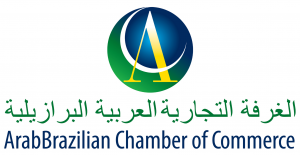KUALA LUMPUR: Companies can benefit
greatly from having halal certification, says Malaysia International
Halal Showcase (Mihas) chief executive officer Mohd Shukri Abdullah.
He said with the certification, the halal sector could create a lot of opportunities for them.
“Halal
certification is becoming a big deal. One day it will be an important
standard in both the local and international food industry,” Shukri
told StarBiz.
According to him, many companies without halal certificates were losing out.
 Mohd Shukri Abdullah
Mohd Shukri Abdullah “Many
hotels and big restaurants these days are very conscious of whether
their suppliers are halal and many of these suppliers lose business
because they are not,” he said.
“The global demand for halal
products is increasing. To meet this demand, products would need to be
safe from contamination of non-halal substances and the only way to
prove such compliance is with halal certification.”
Shukri estimated that there were currently only about 2,300 companies in Malaysia with halal certification.
“Many
companies today do not have halal certification because they do not
meet good manufacturing practice (GMP) standards. When the Department
of Islamic Development conducts checks on them, they lose out on
cleanliness.
“Companies looking for certification are rejected
for poor GMP and not on whether products were halal. If a product is
unclean, it is not safe for human consumption,” Shukri added.
Many
countries, primarily within the Asean region, were going into halal
certification and Malaysia was starting to realise its importance, he
said, adding that by adopting certification, Malaysia had an
opportunity to steal a march on countries from the Middle East, which,
ironically, were not so stringent on halal certification.
“Countries
from the Middle East are allowing all kinds of foods to enter their
countries because the products do not comprise either pork or alcohol.
“Pork can come in different forms such as emulsifiers, conditioners or even colouring,” he added.
Shukri
also said suppliers of products to the Middle East might be unwittingly
including products tainted with non-halal elements.
“A
non-Muslim supplier could decide to use a type of colouring that could
be cheaper or of better quality but may not realise that it may be
tainted with non-halal elements,” he said.
“All the particular supplier would be taking into account is that he is not supplying pork or alcohol.”
He
also said Middle Eastern countries would then look to countries that
issued halal certification like Malaysia as an alternative for halal
supplies.
On Malaysia’s potential as a global halal hub, he said the country still had a long way to go.
“But it is getting there and events like Mihas would help expedite that process,” he said.
Organised
by the Malaysia External Trade Development Corp (Matrade), Mihas is the
largest annual gathering of halal industry players and entrepreneurs in
the effort to ease the sourcing and selling of global halal products.
Shukri said Mihas would also help boost foreign direct investments.
As
an example, Shukri said companies from China often had problems
exporting to Muslim countries because of their predominantly non-halal
products.
He said Malaysia would not face a similar problem despite the fact that the country’s exporters were predominantly Chinese.
“They
are still successful because they are based in Malaysia. With Mihas, we
are trying to encourage local Chinese businessmen to work with their
foreign counterparts,” he said.
“We want to encourage them to
come set up factories here, send their raw materials here, process and
pack them here. They can then get local halal authentication and send
them to the world.”
This year, Mihas will be held from May 7 to
11 at the Matrade Exhibition and Convention Centre. It expects
participants from 30 countries to open 610 booths. It also hopes to
attract about 40,000 visitors from 70 countries.
The event last year registered over RM600mil in sales.



